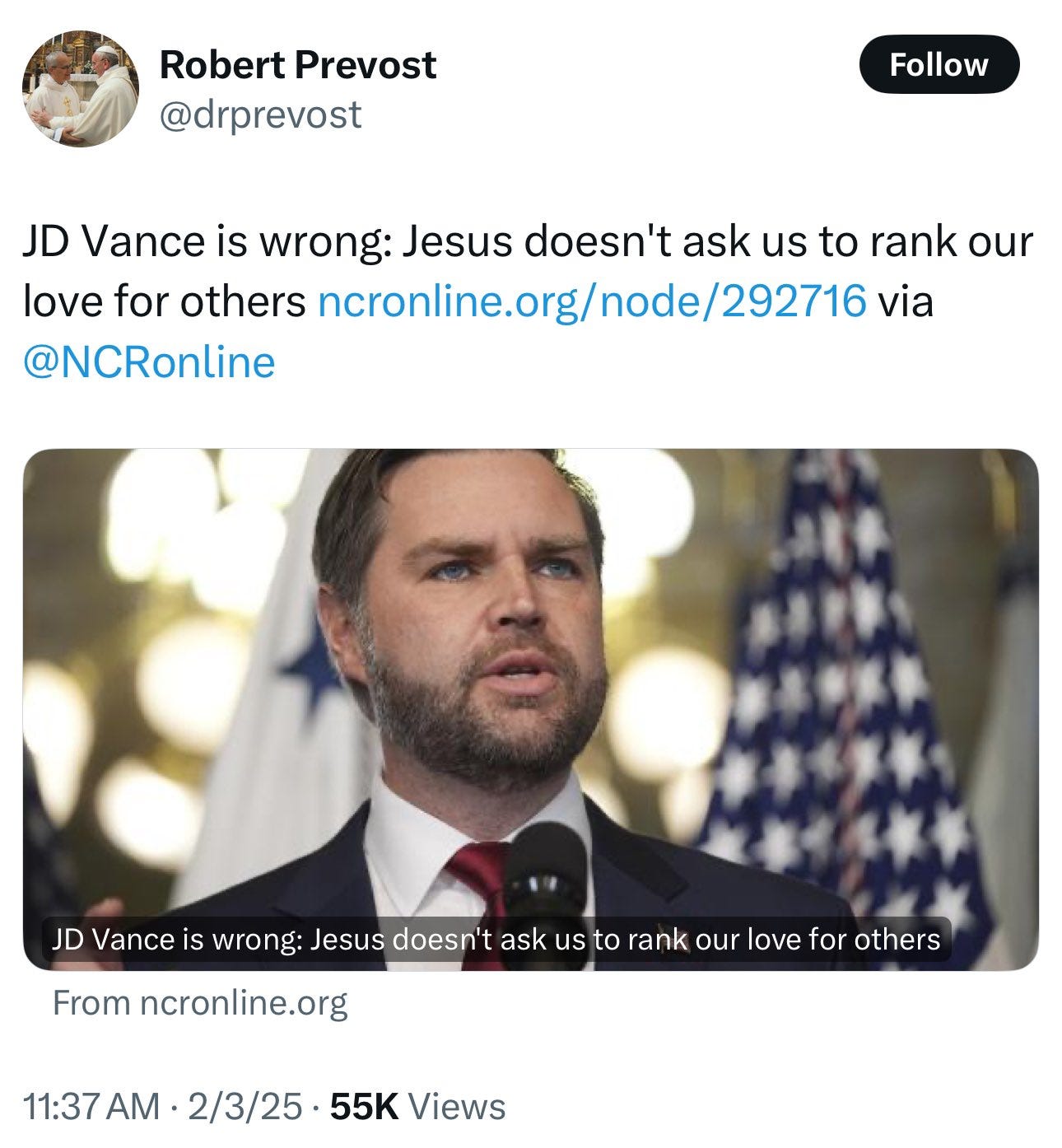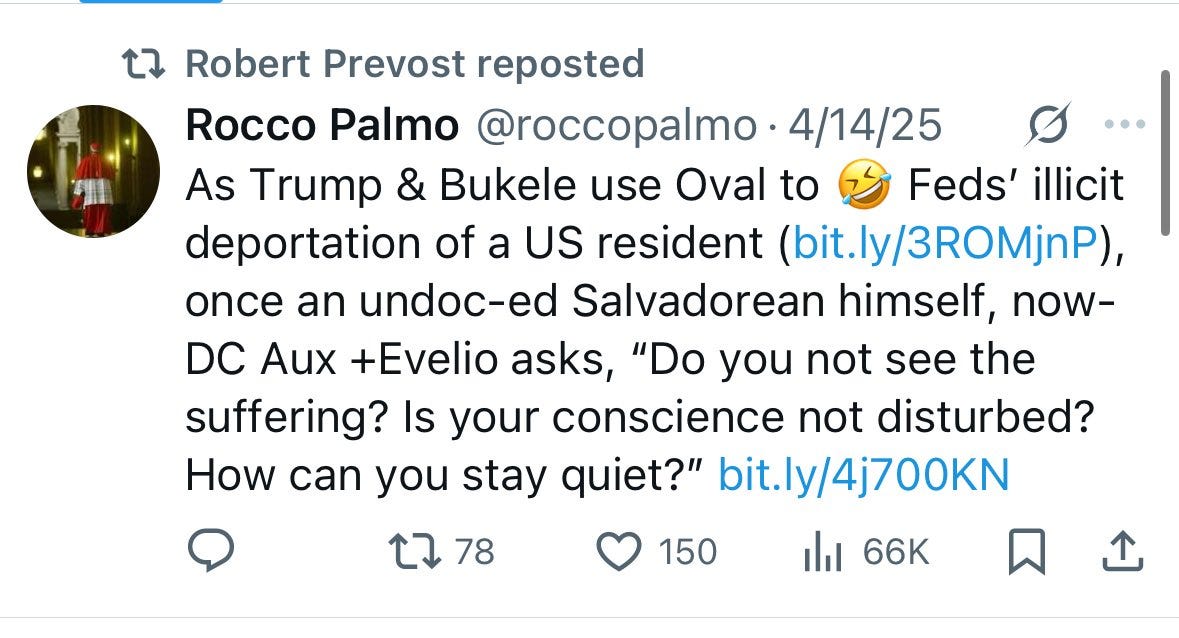We are witnessing a historic moment in the Catholic Church: the election of the first American Pope. Known to the world now as Pope Leo XIV, he was elected in a conclave that has already become the subject of intense global fascination. But in a twist fitting for the digital age, some of the most revealing insights into the new pontiff’s worldview aren’t coming from Vatican press releases or theological writings — they’re coming from Twitter.
Before I continue, this morning, MAGA started calling for my arrest because I share accurate, timely news. I won’t stop, but I can only continue this work with your support. Please consider subscribing today to support:
Yes, Twitter. Or more specifically, from the account @drprevost, which many observers now believe belonged to the new Pope. The most striking aspect of the account is its clear disdain for Donald Trump and J.D. Vance.
One post directly criticized Vance’s public interpretation of Jesus — a rare move for someone now expected to shepherd over a billion Catholics.
Another post linked to an article sharply critiquing Vance’s comments on deportation policy, suggesting that the Pope-to-be saw these positions as inconsistent with Christian ethics.
And while the account did not comment extensively on Trump himself, it did retweet criticism of Trump laughing alongside El Salvador’s President Nayib Bukele about an alleged abuse victim, Abrego Garcia. The tone was clear: this wasn’t just political commentary — it was moral condemnation.
He was also critical of Donald Trump’s immigration policies from 2015.
The account also retweeted updates on the health of the previous Pope, hinting at personal concern and a deep respect for his predecessor. These may seem like small gestures, but they speak volumes in a world where silence is often used to signal indifference or political caution.
So, what does this tell us about our new Pope?
First, that he is politically aware — and not afraid to speak plainly about what he sees as moral failings, even when they come from the powerful. Second, that he may bring a very different tone to the papacy — one that is less cloistered and more confrontational, at least in the digital arena. And third, that his American identity might shape his papal tenure in ways we’ve never seen before.
We don’t yet know how these early signals will translate into doctrine or diplomacy. But we do know this: the papacy just got more online. And the world — Catholic and otherwise — is watching.

















Share this post